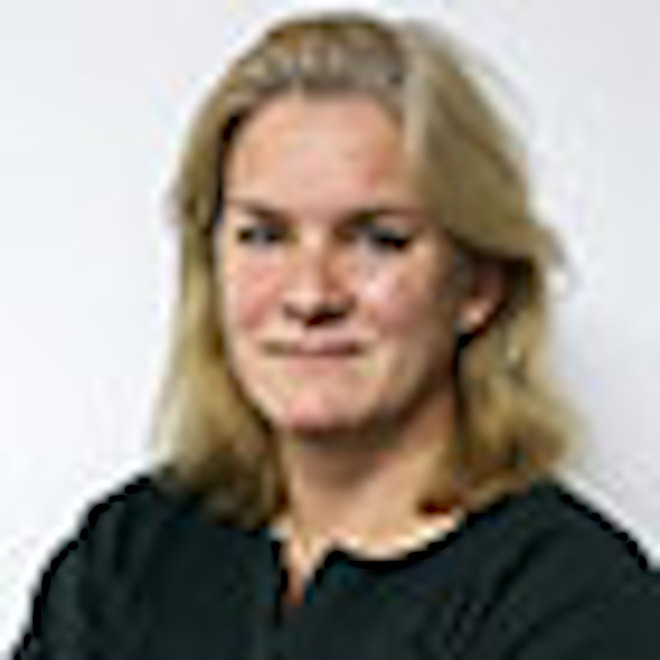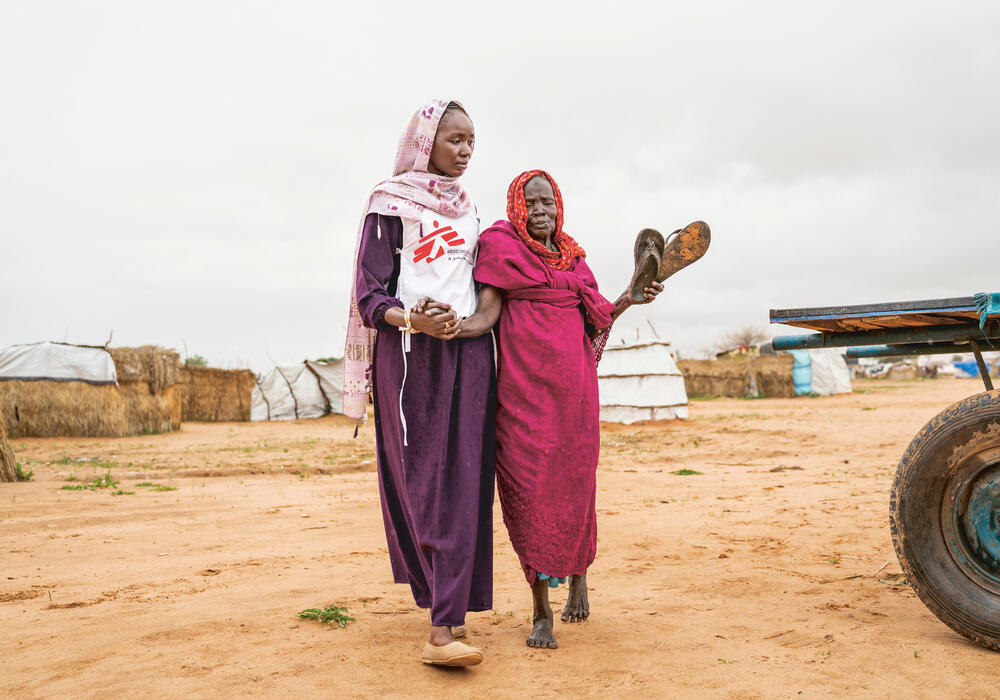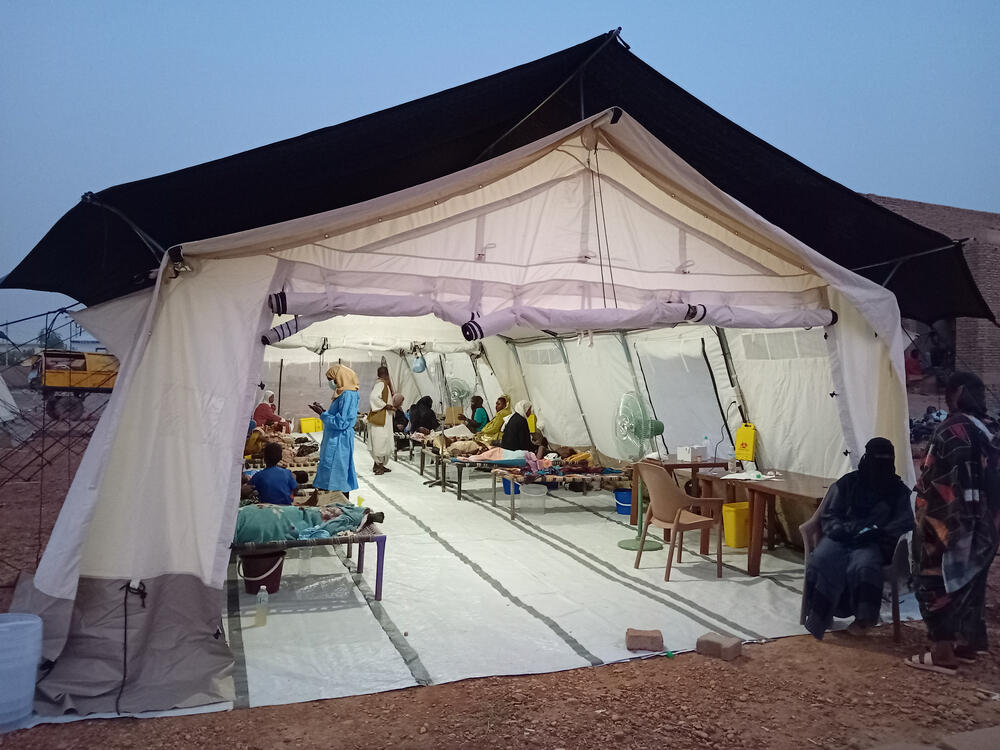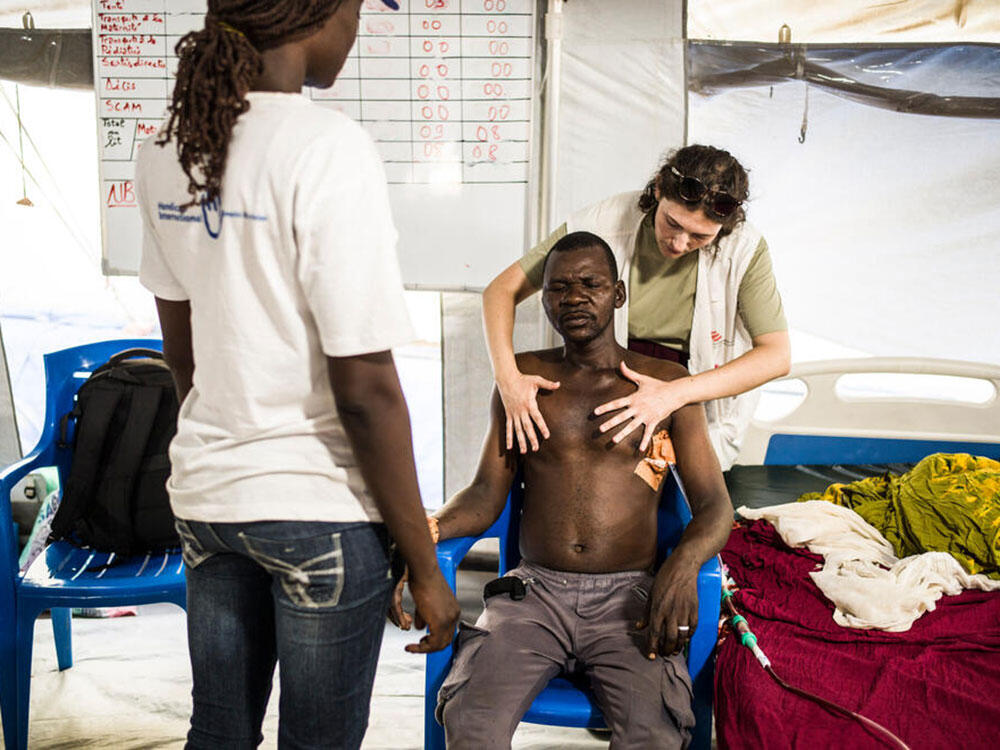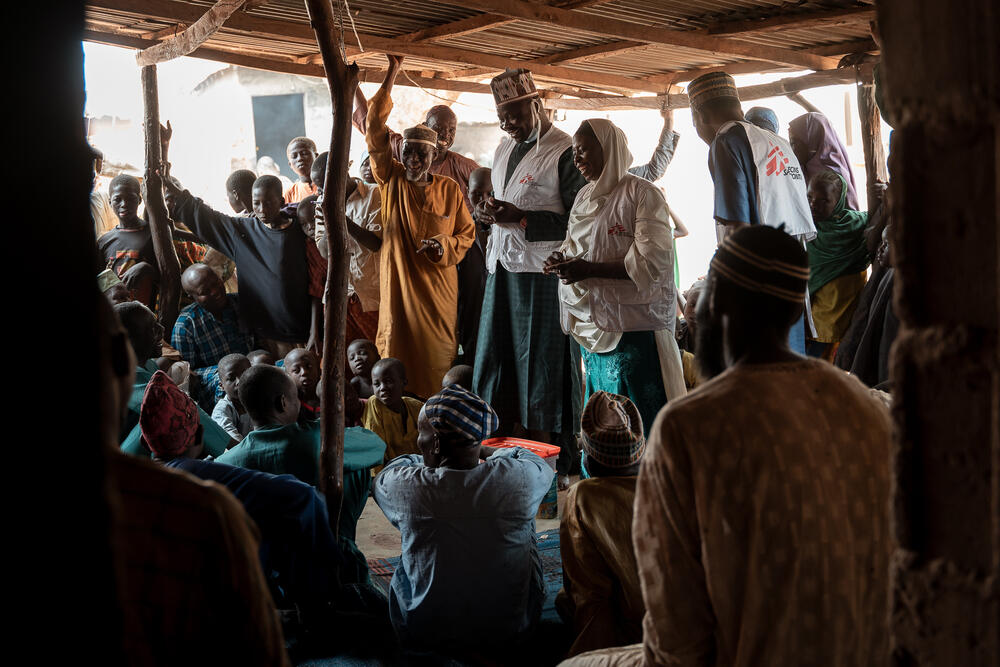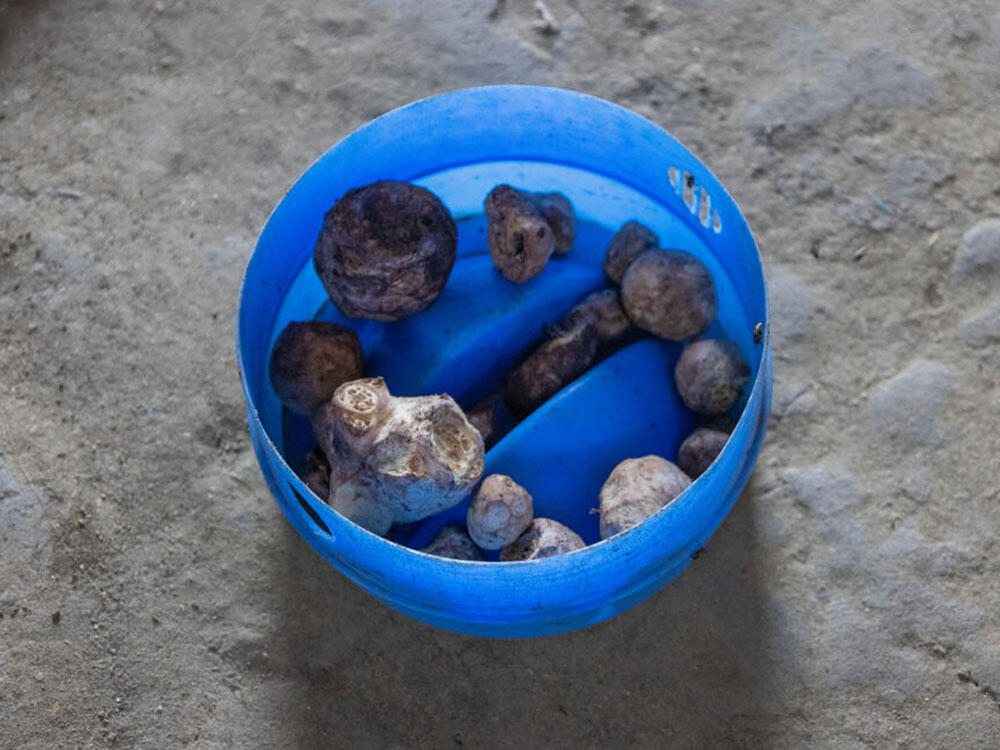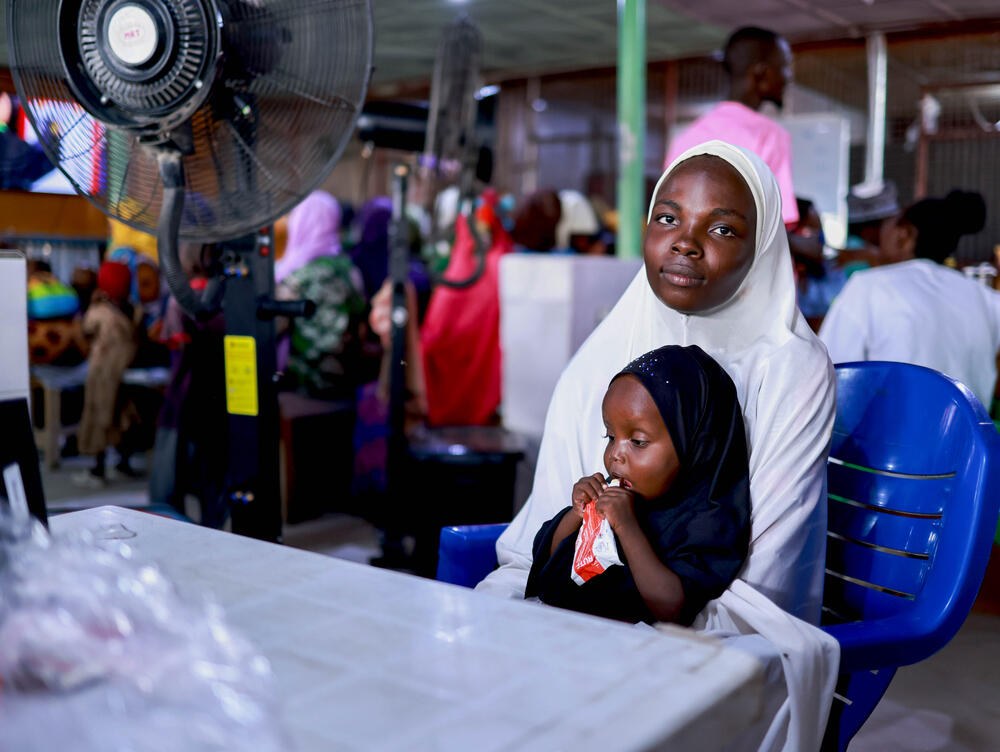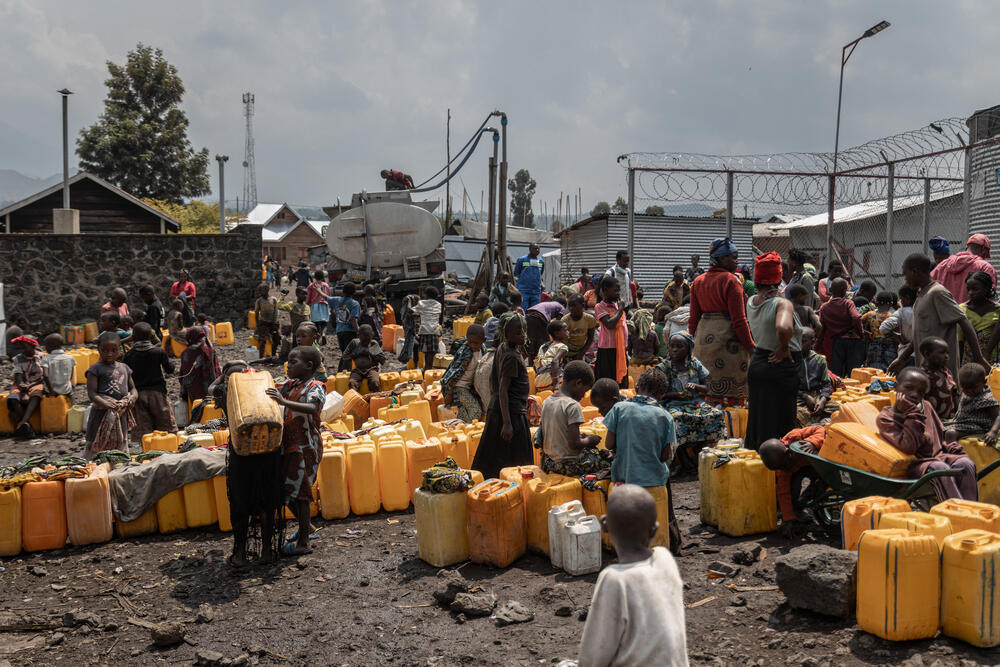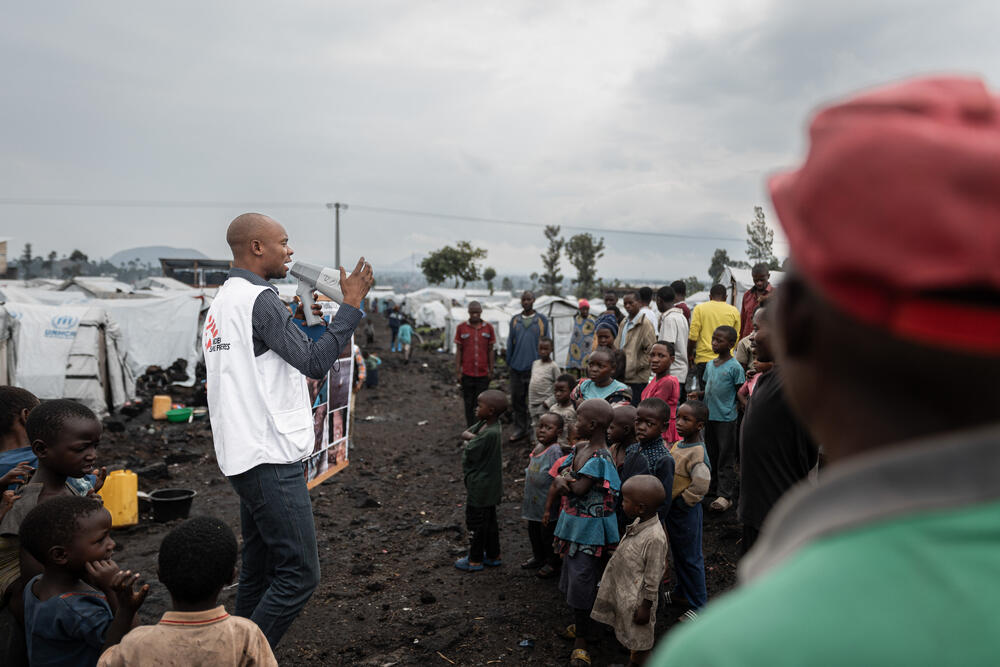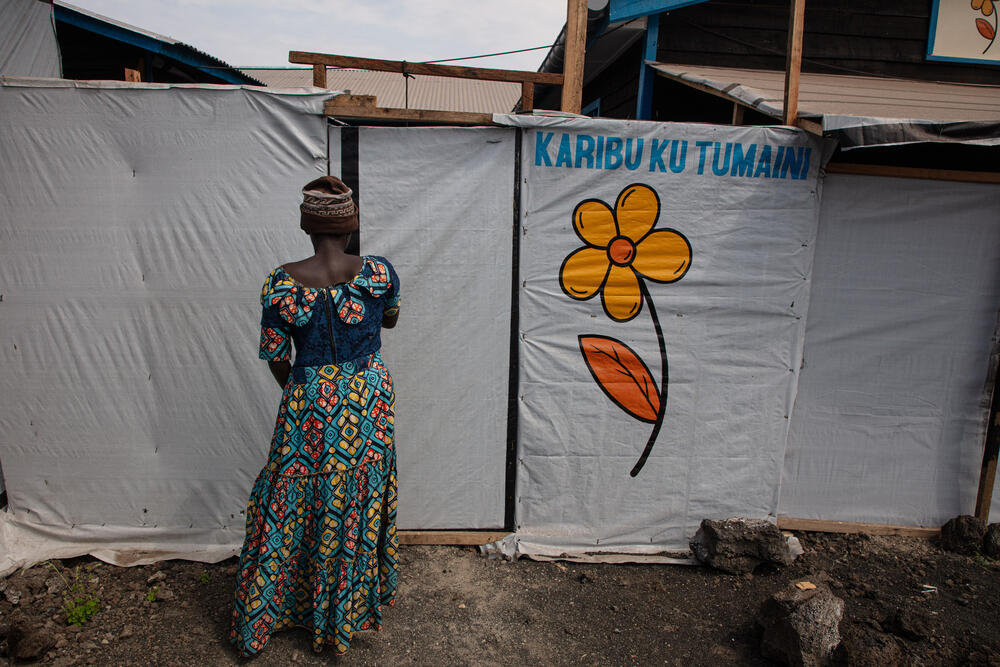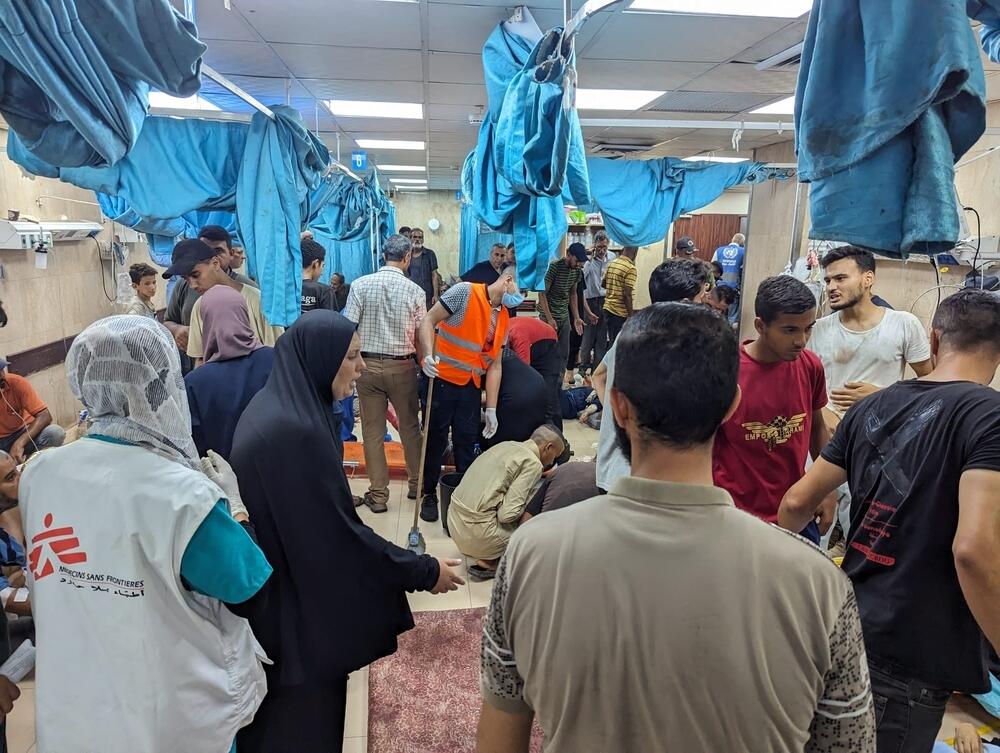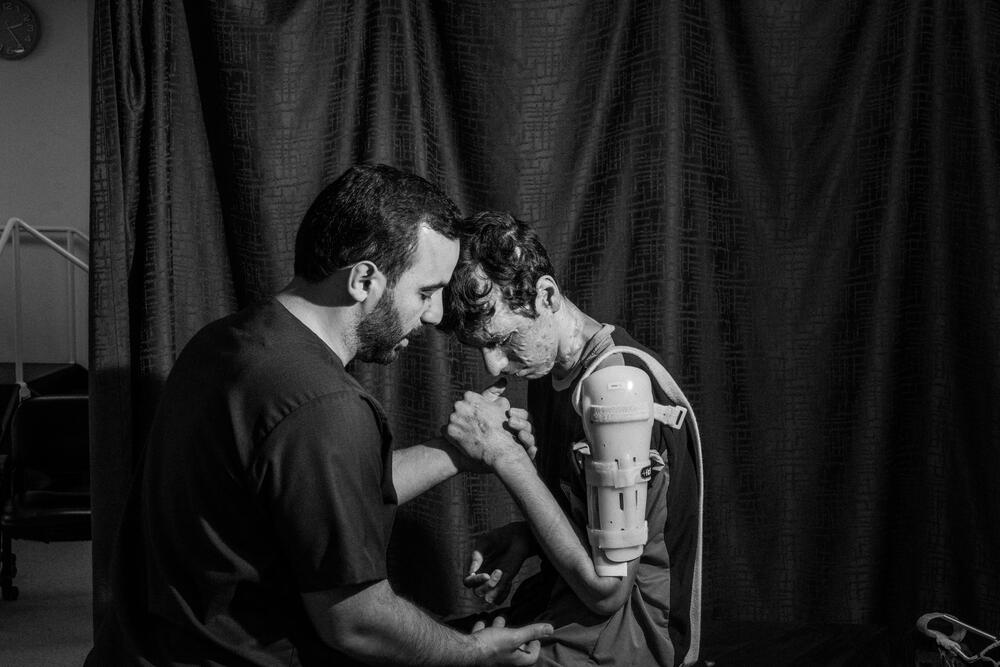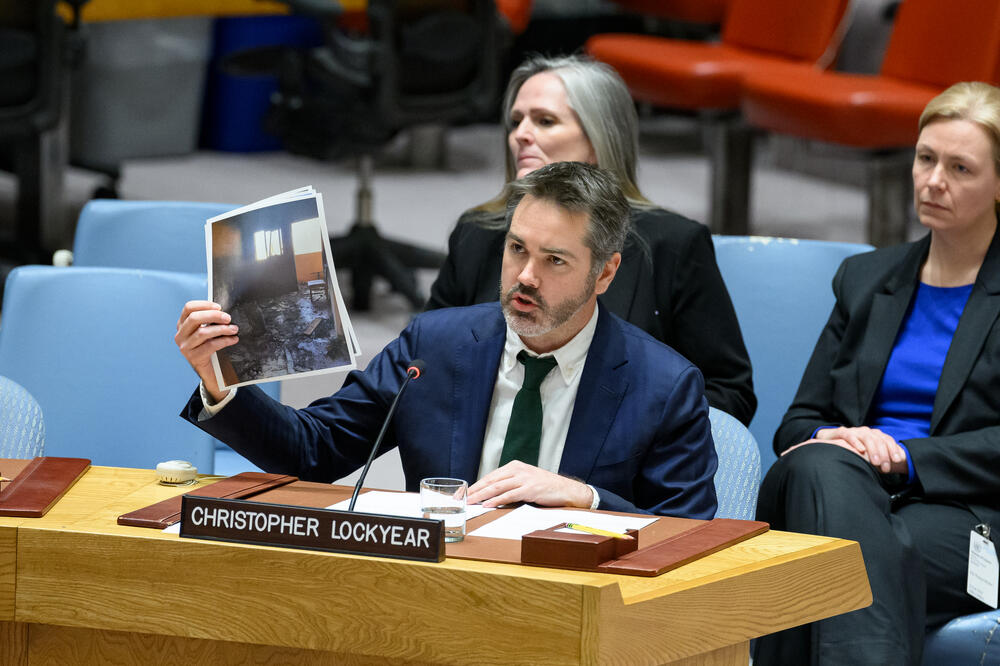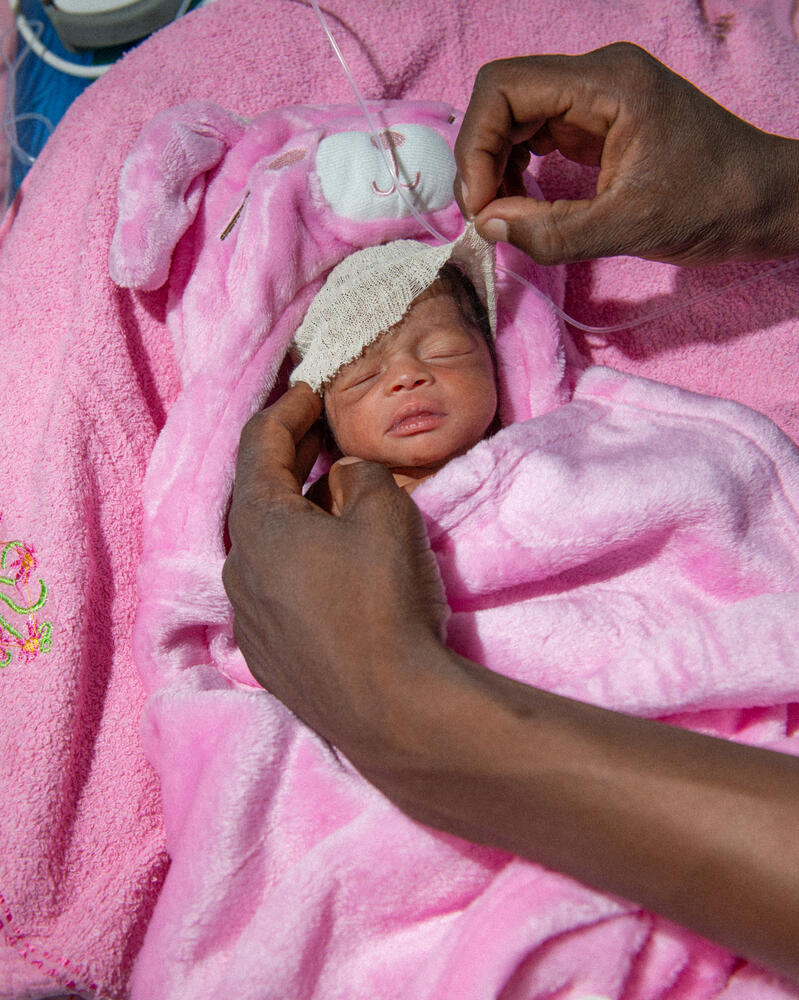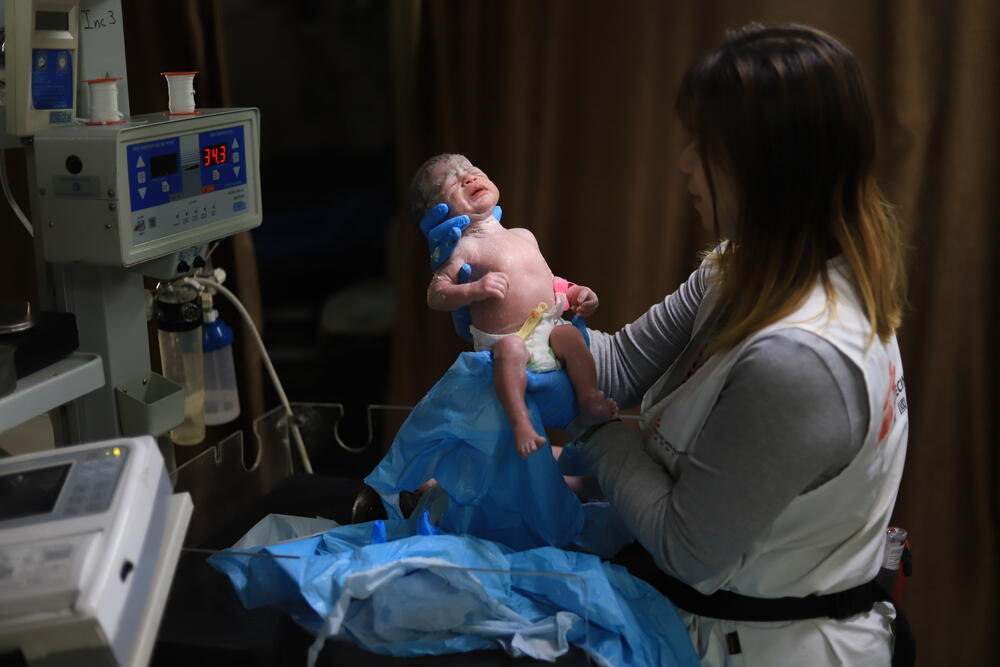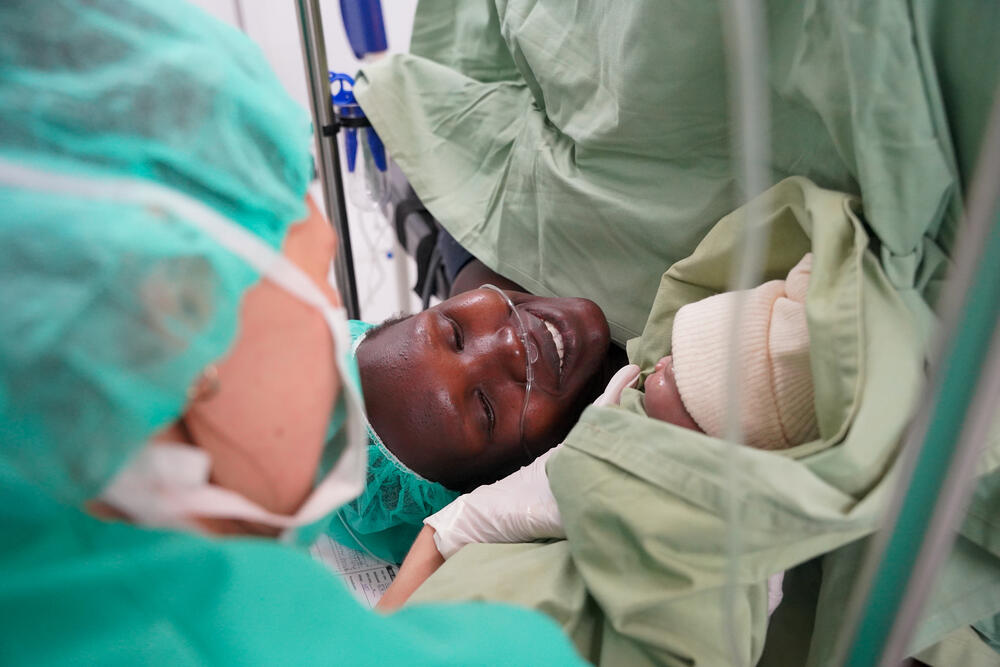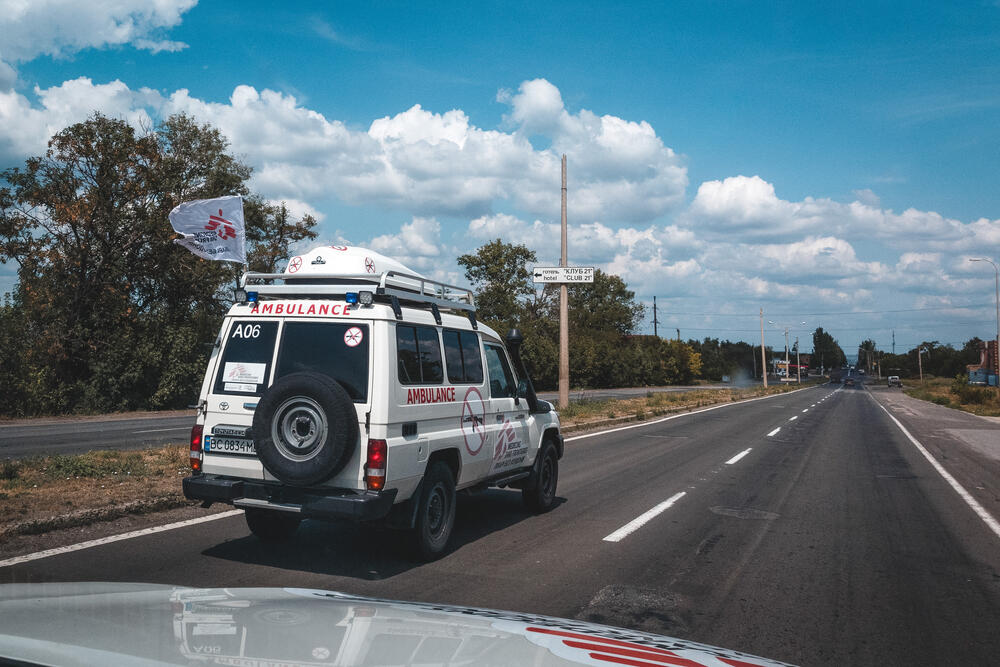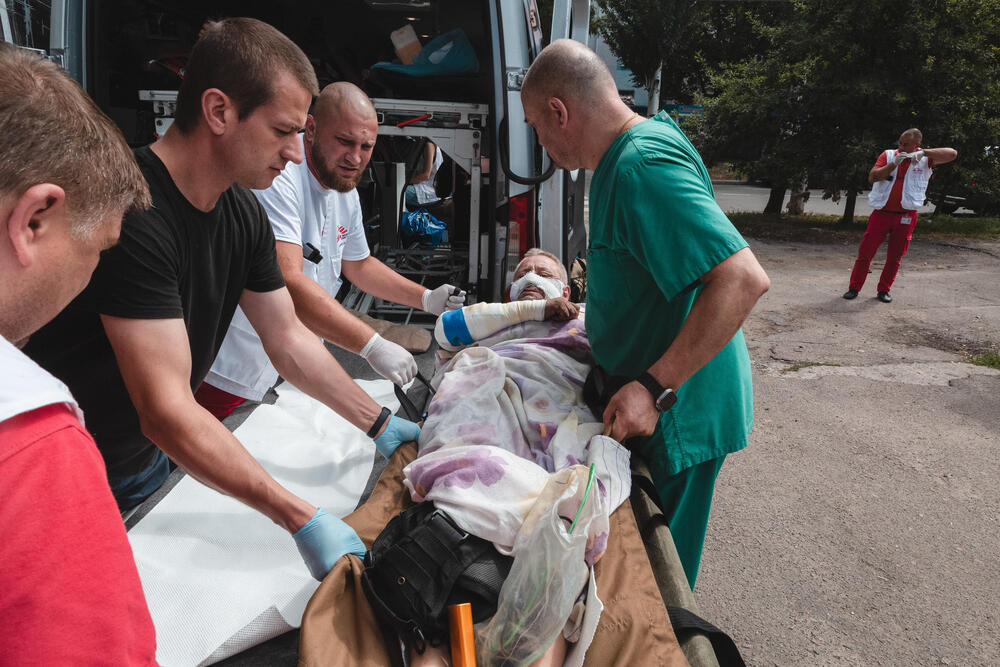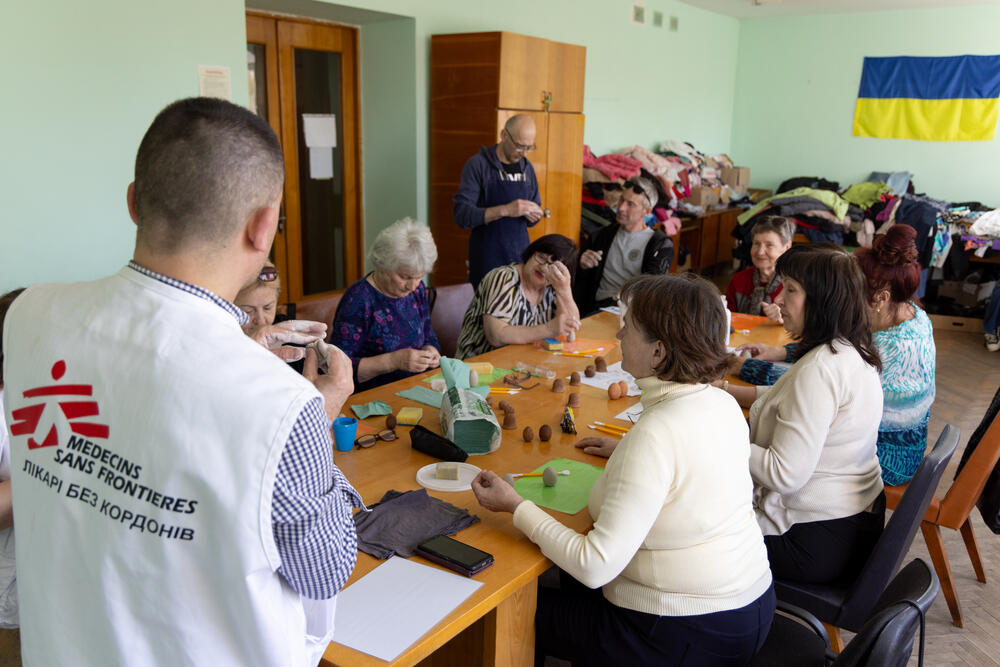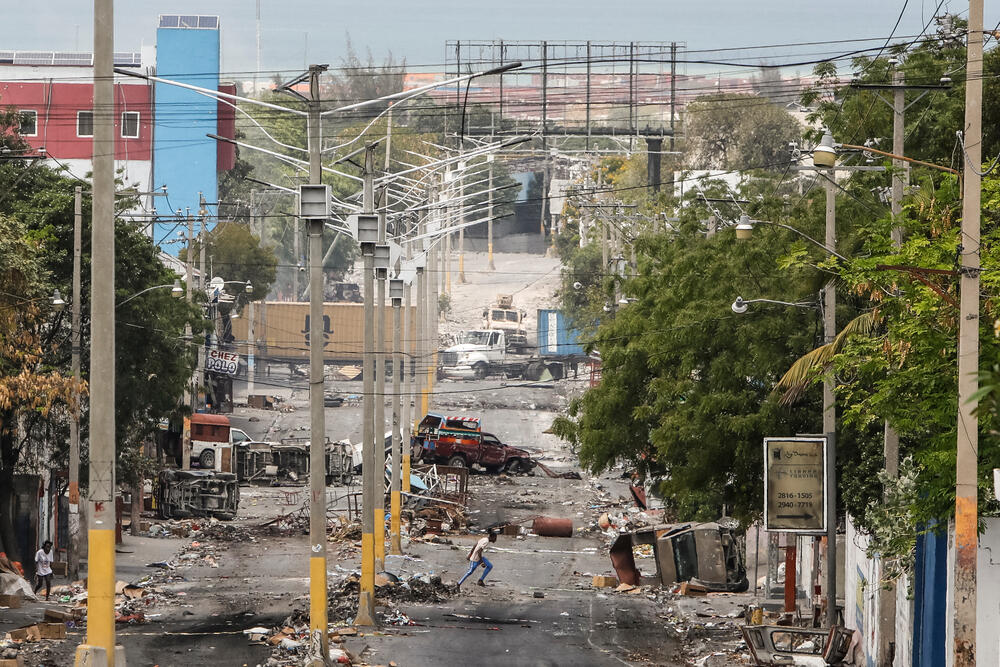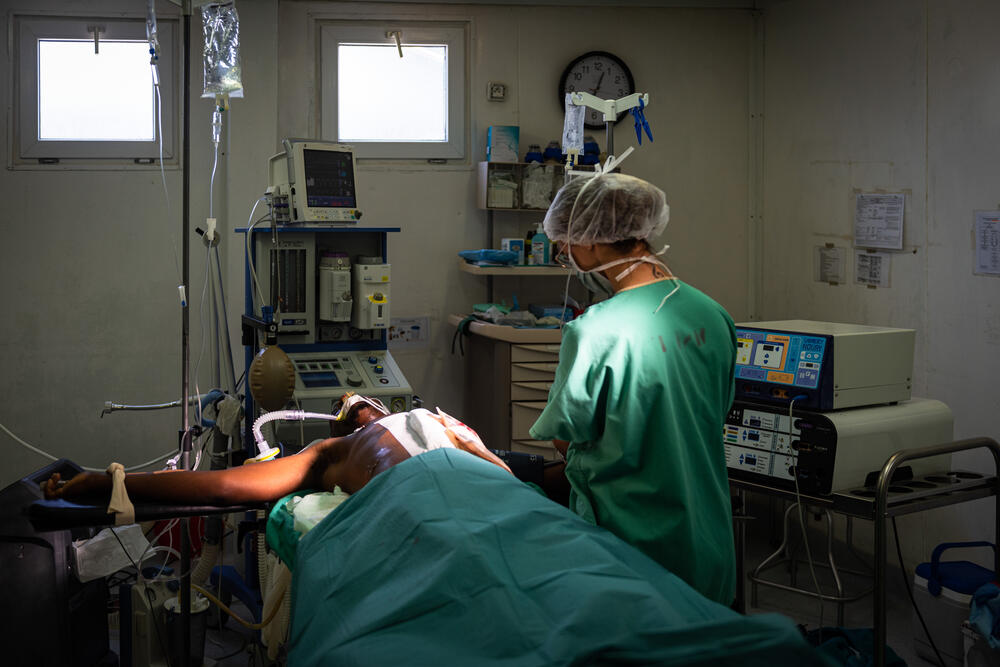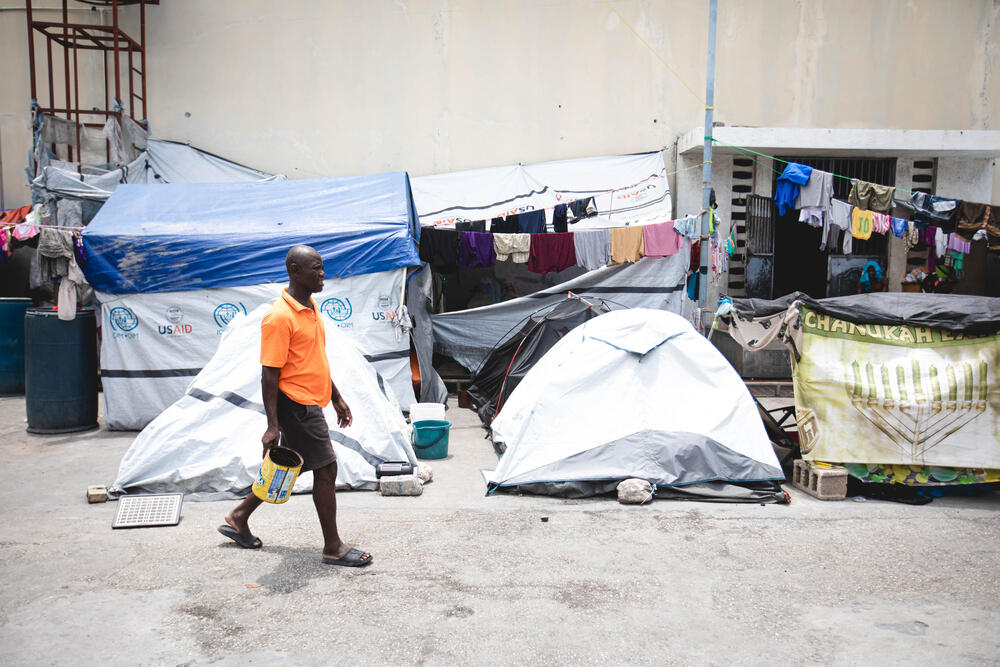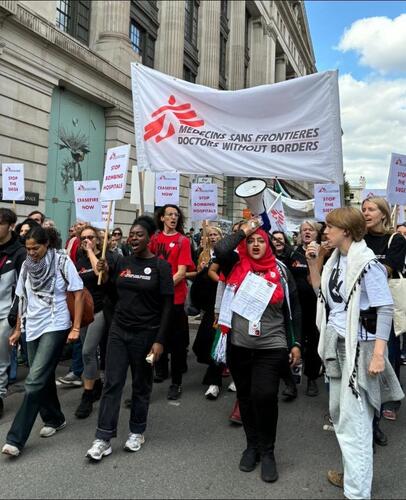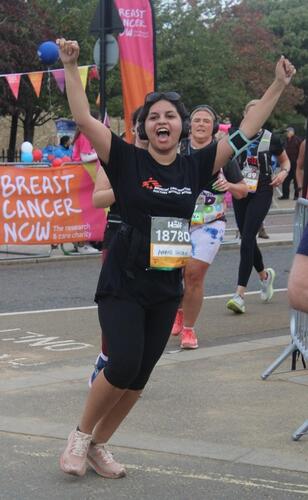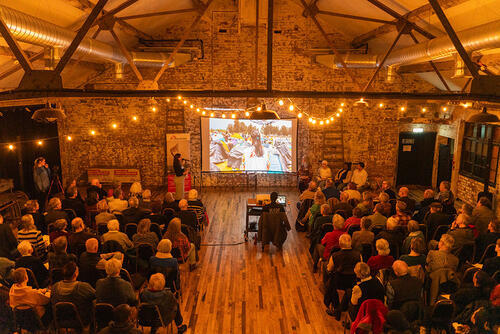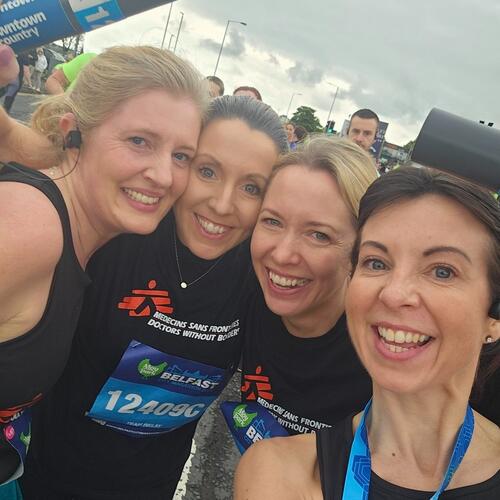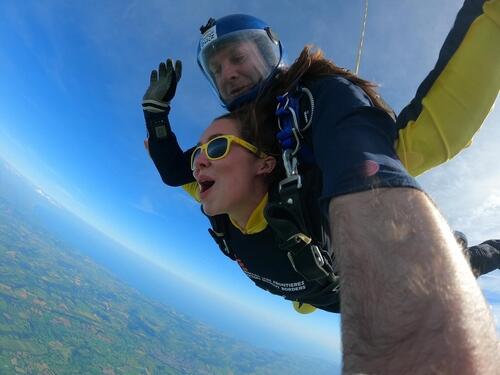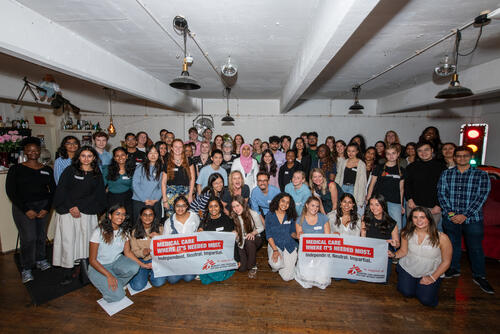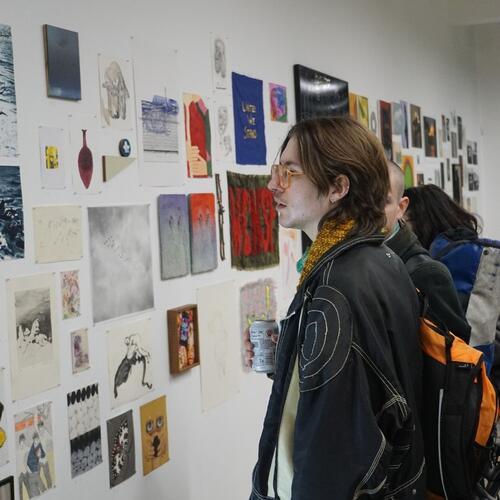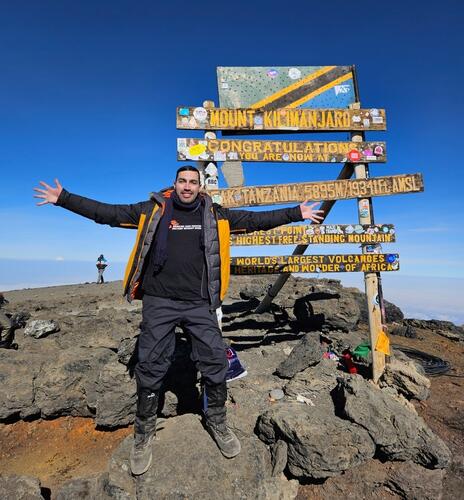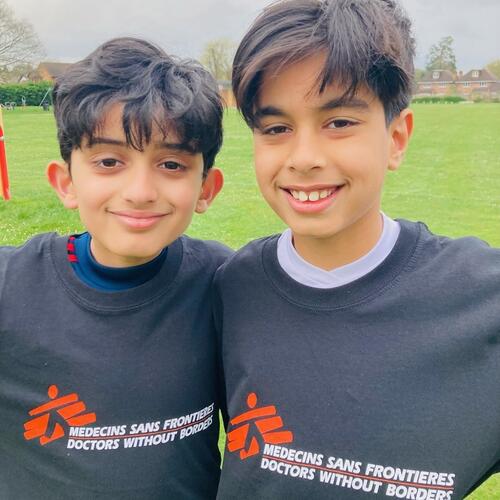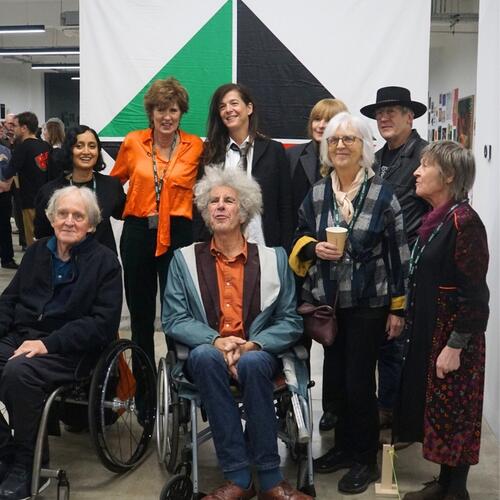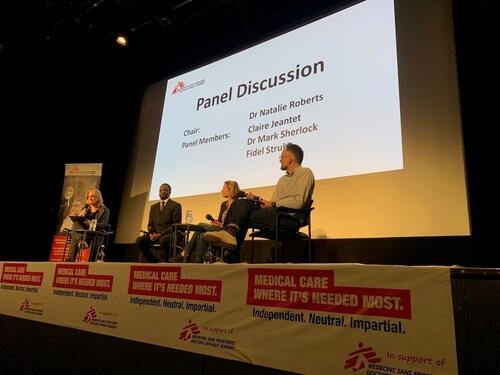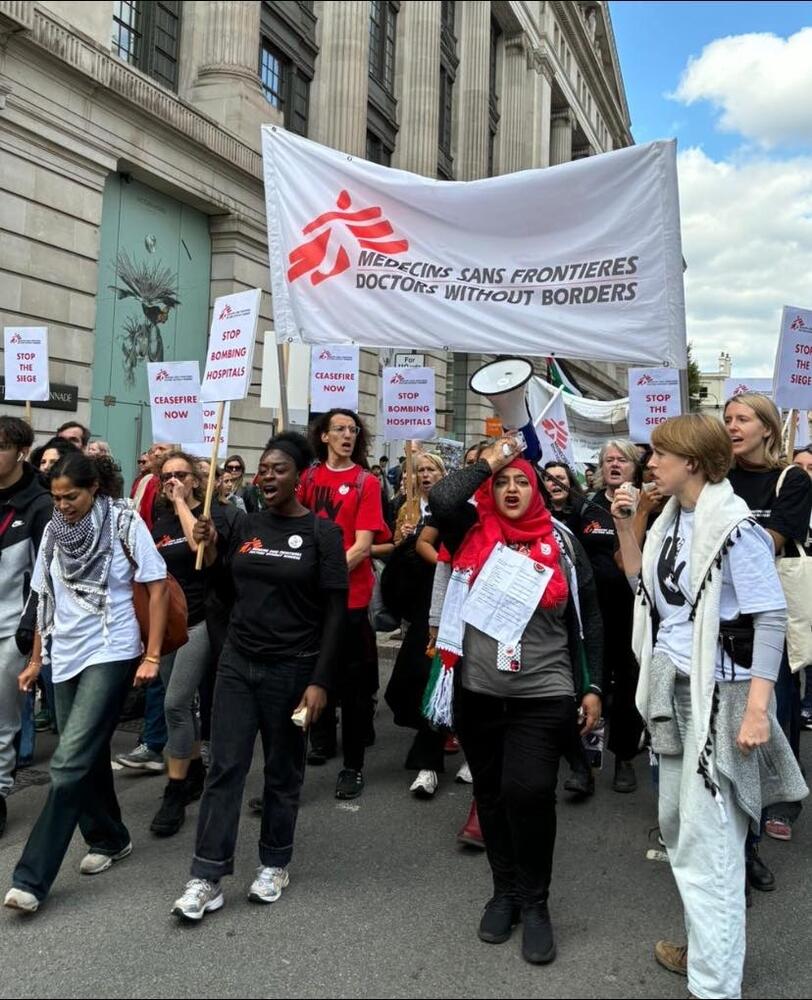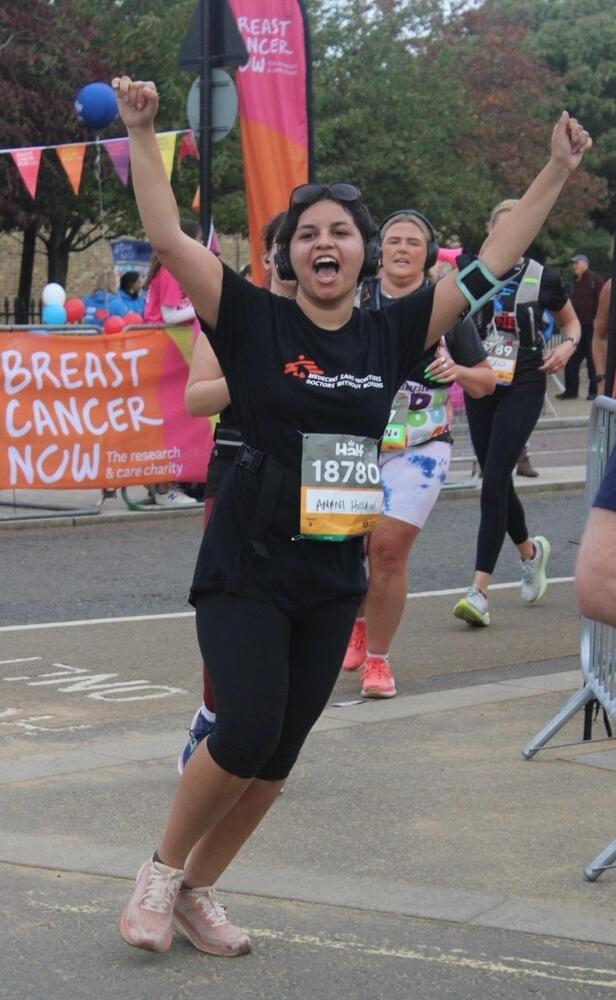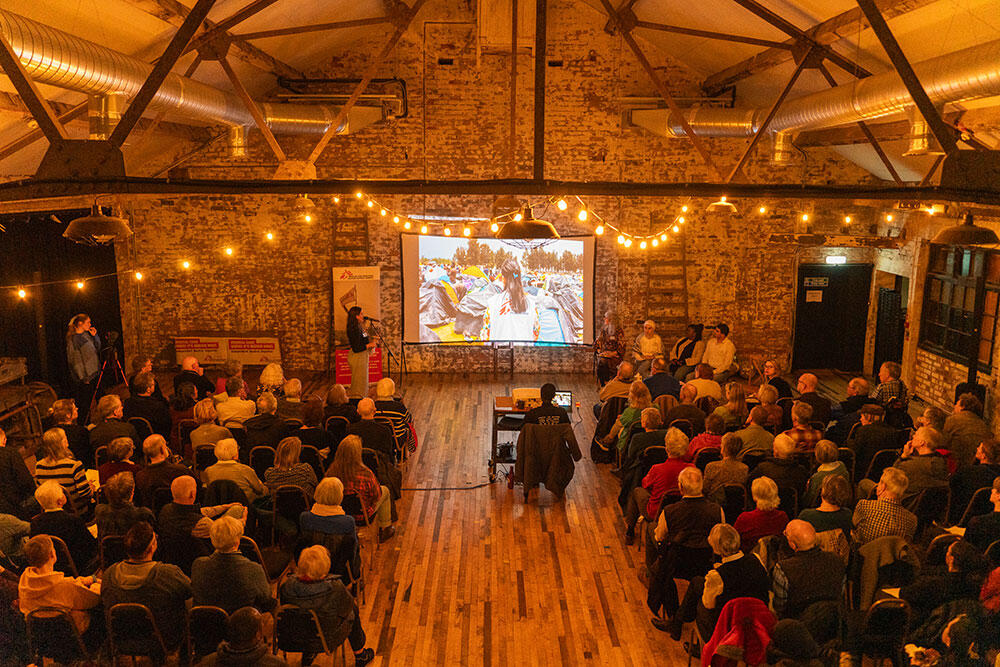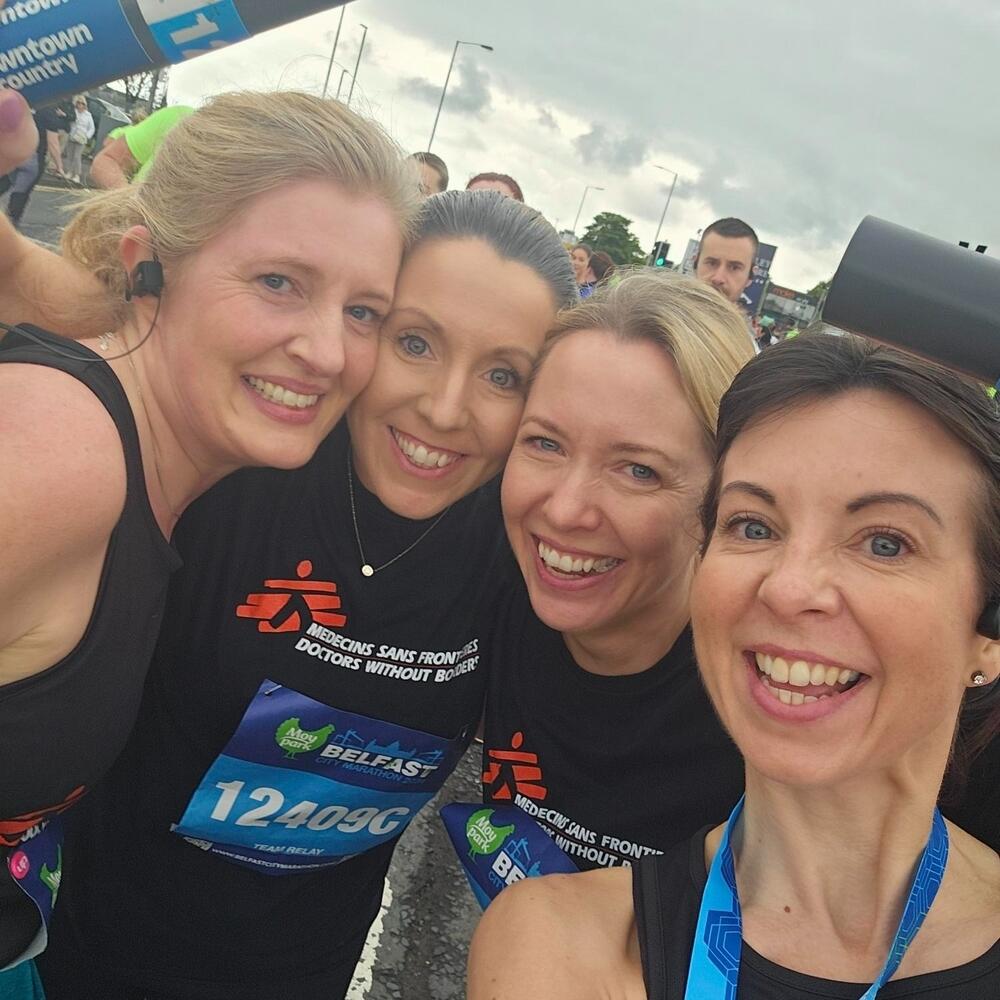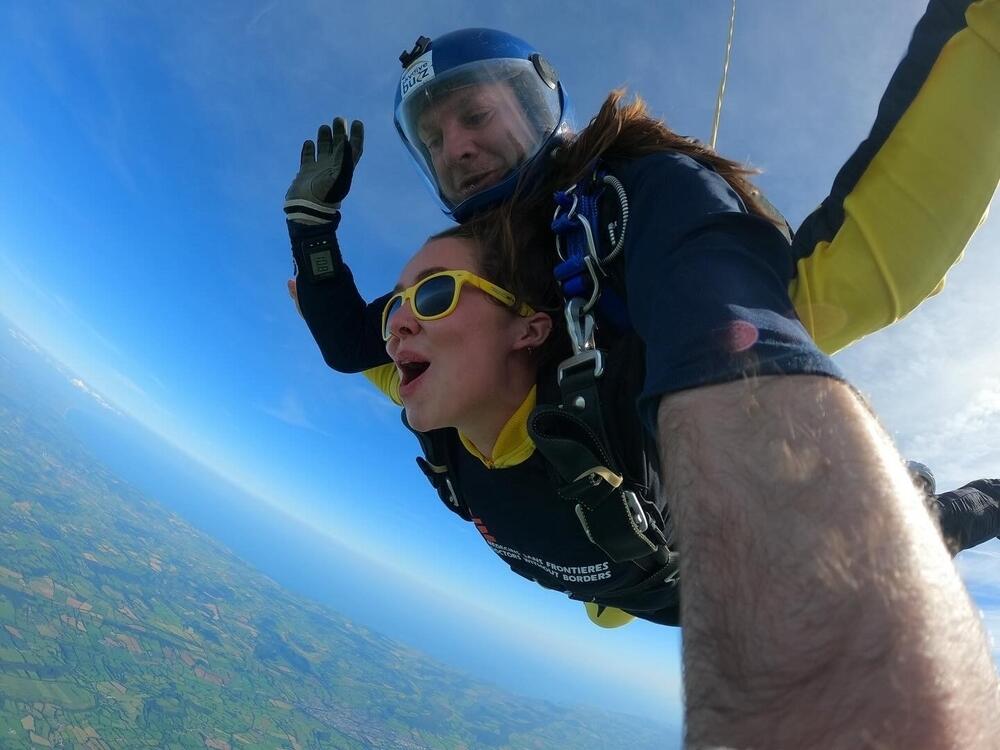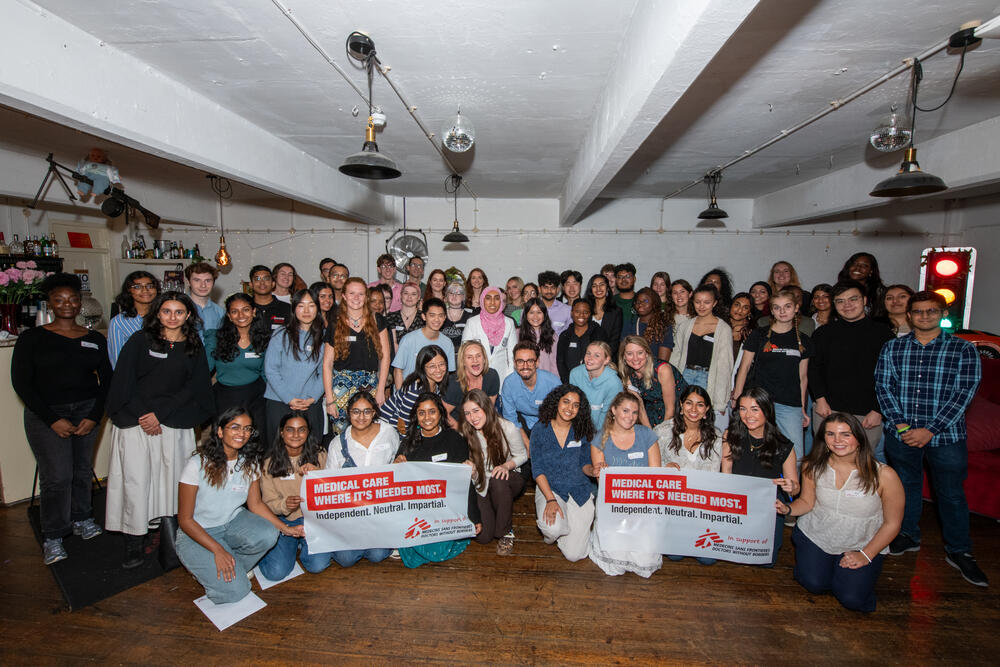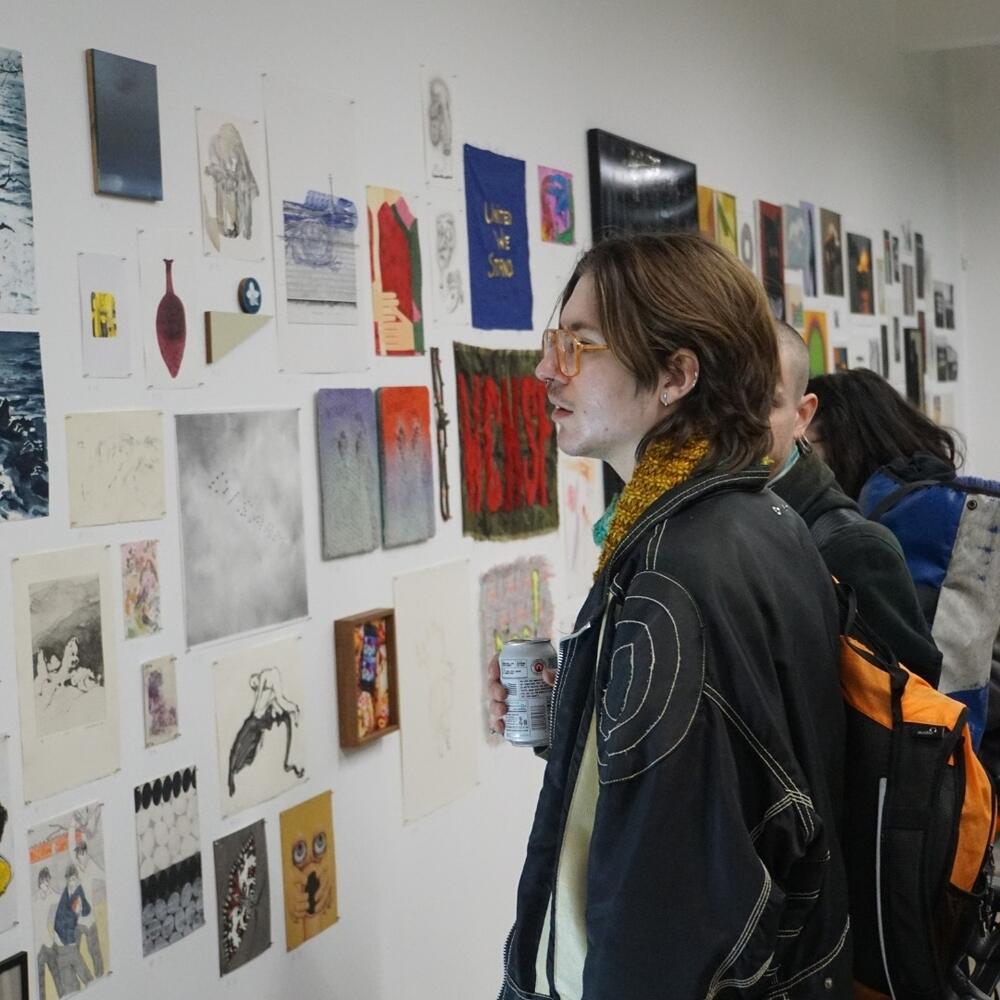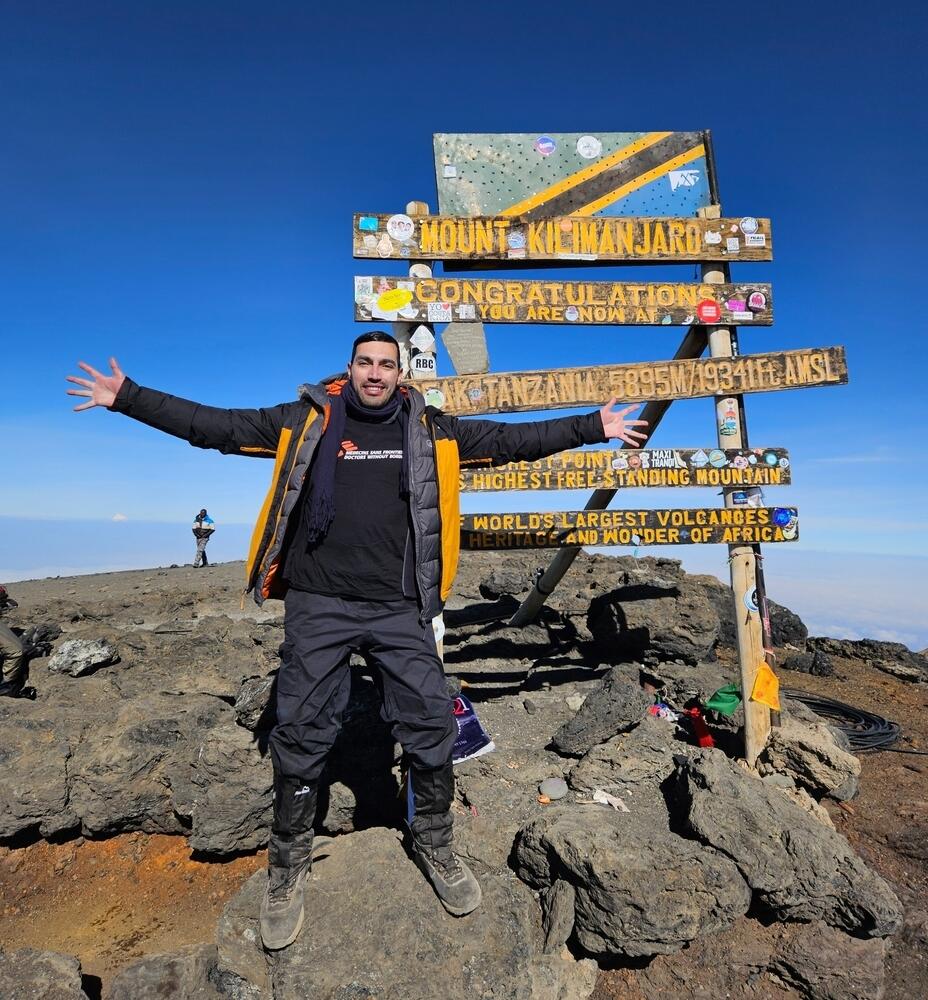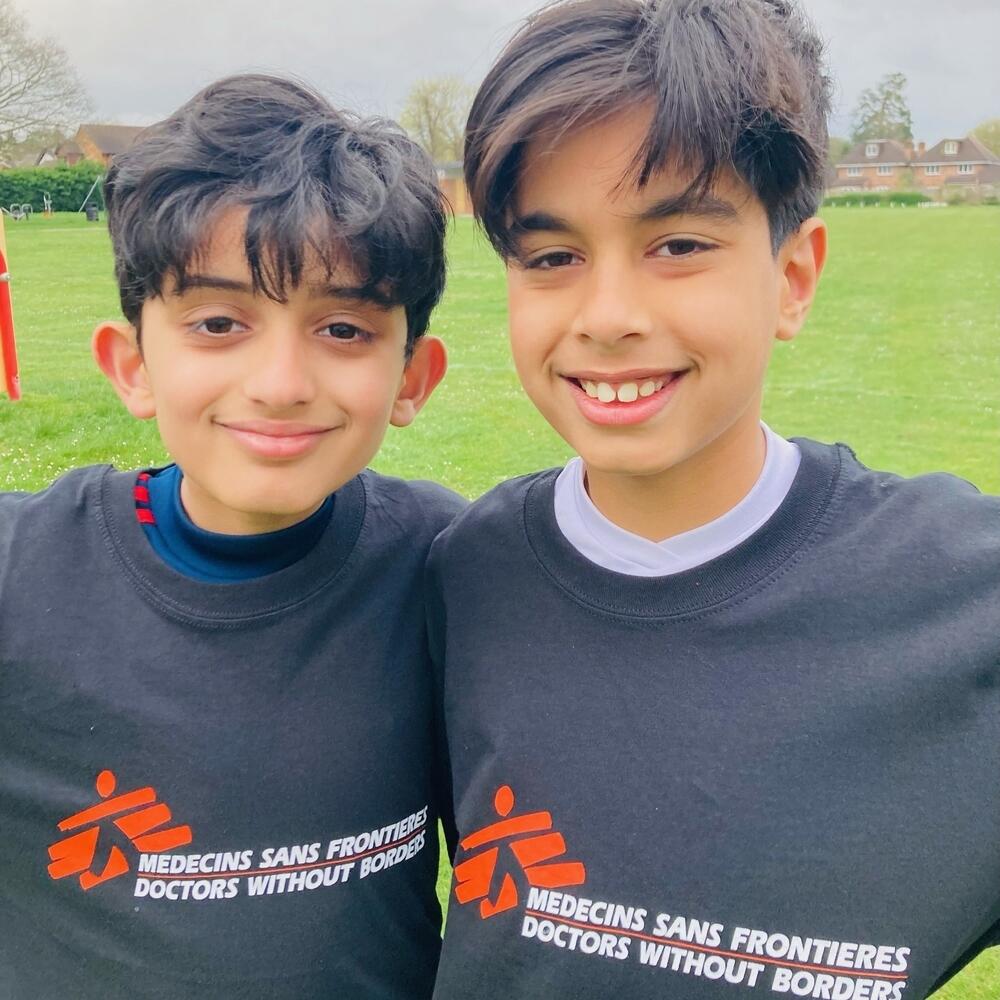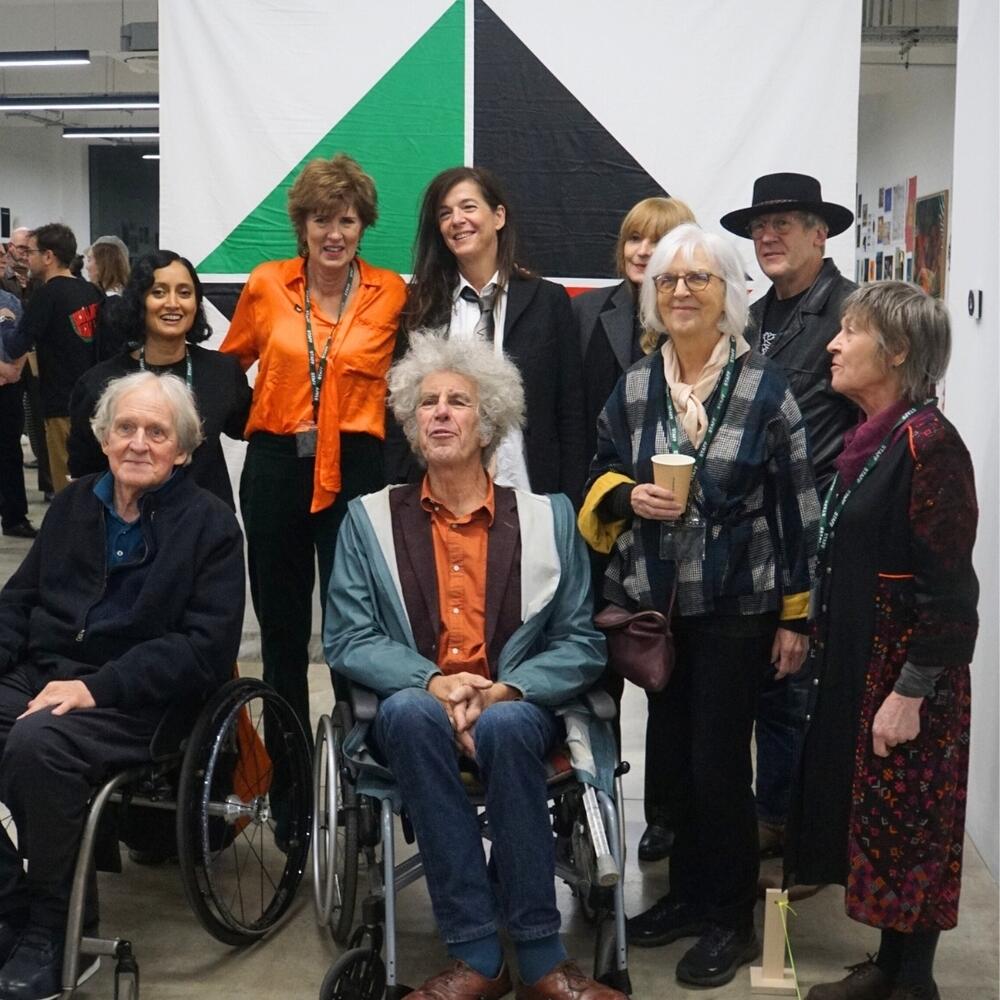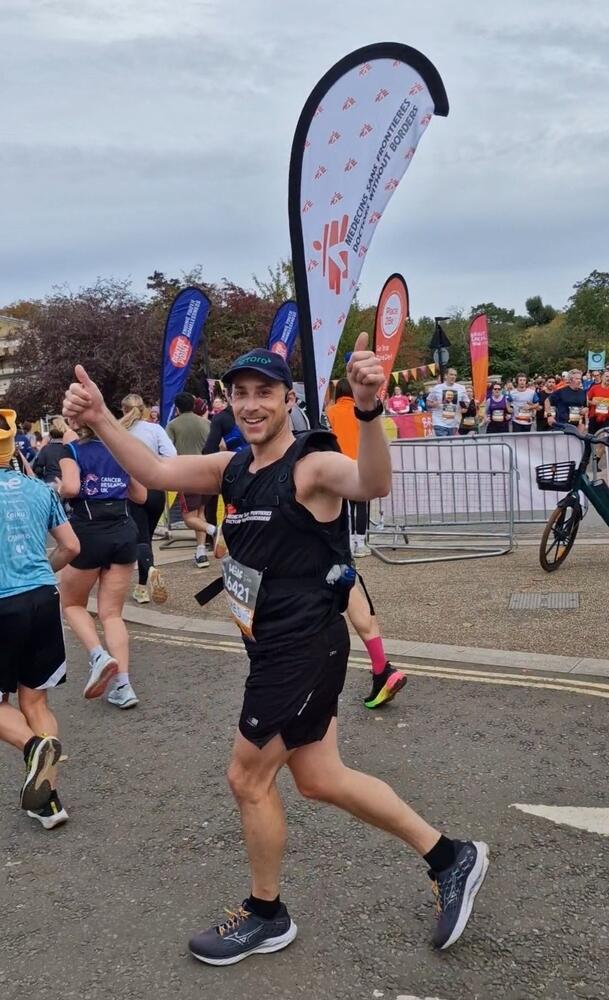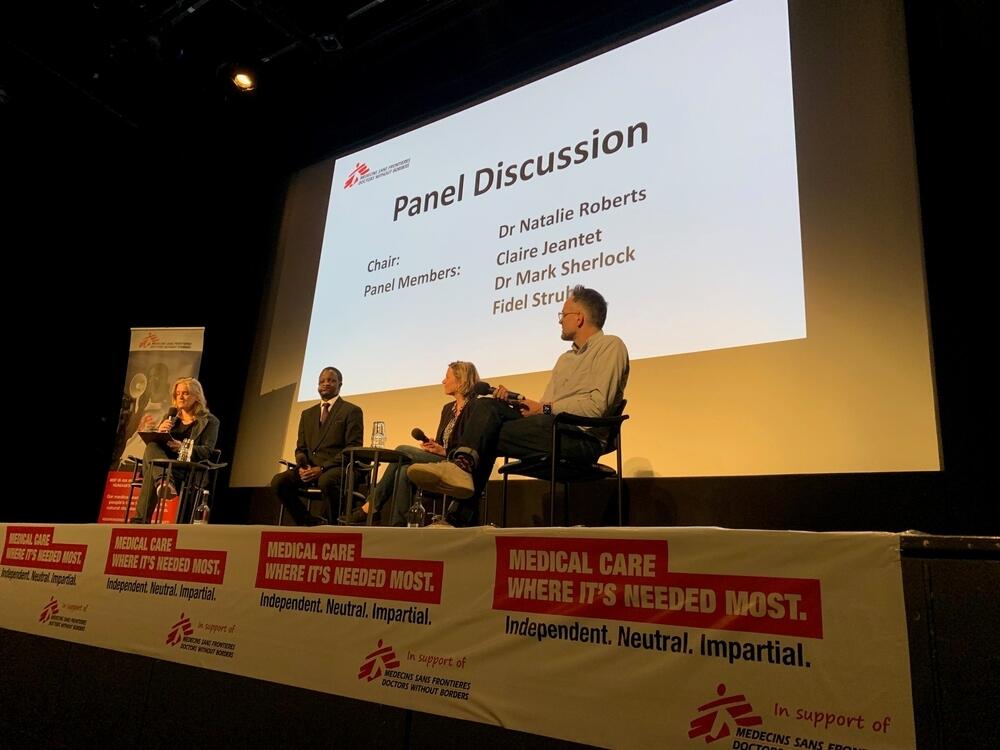Eight ways you helped us save lives in 2024
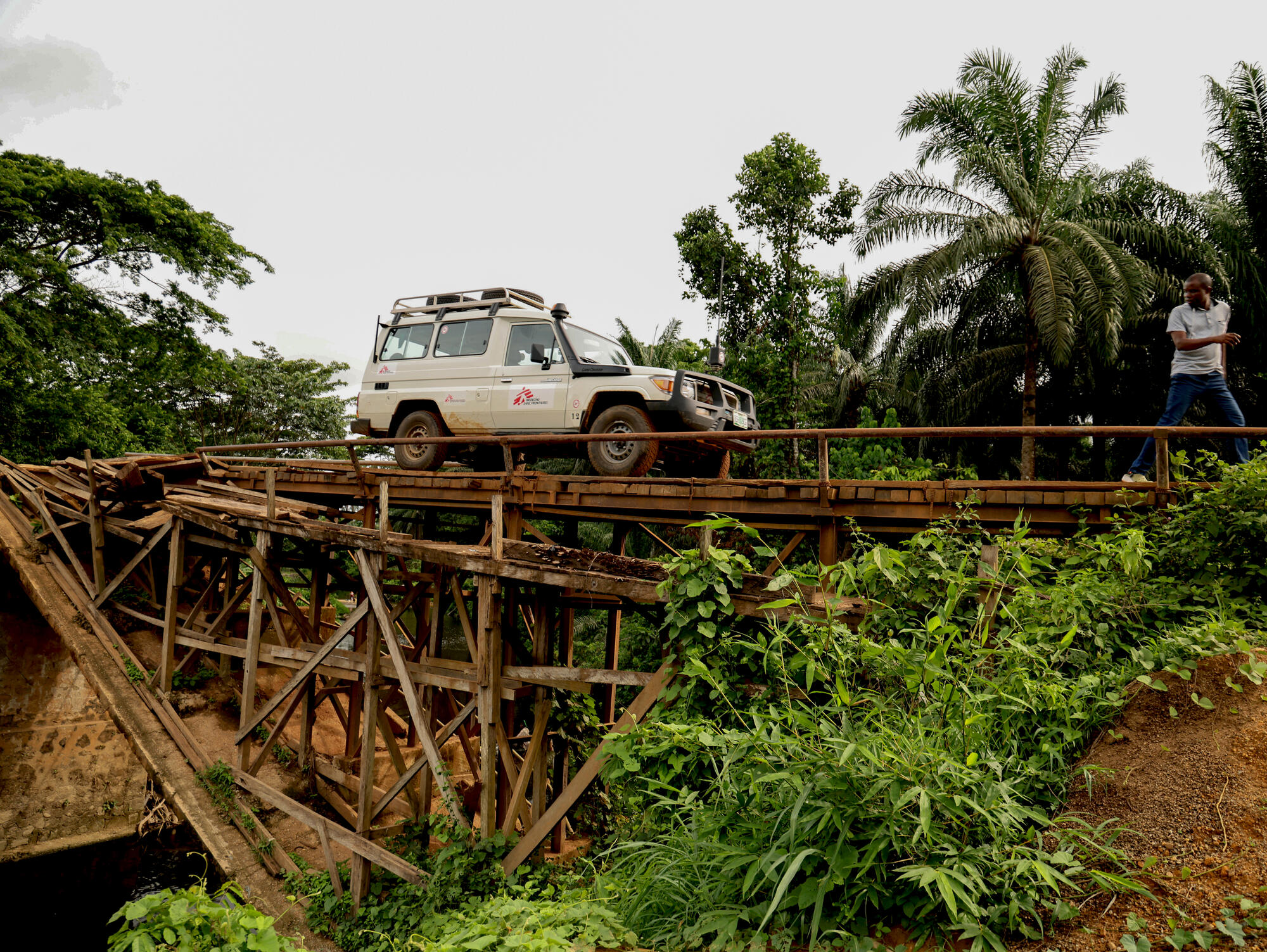
MSF teams have worked throughout 2024 to bring medical care, well-being and dignity to those living through the starkest humanitarian crises.
Headlines this year have been dominated by events in the Middle East. Yet, the clichéd line that “tensions are high” in the region fails to convey the level of catastrophe our teams have witnessed inside the Gaza Strip – where more than 44,000 people have now been killed, including 13,000 children.
Our teams have been providing trauma care across the Strip in the aftermath of massive and indiscriminate Israeli airstrikes, while also working to keep essential services running, such as maternity and paediatric care. But this work does not come without risks. Our hospitals have been repeatedly besieged and attacked, and our safety repeatedly compromised. Eight colleagues have now been killed since the war began.
Meanwhile, in Sudan, the civil war has developed into a vast crisis that has forced more than 11 million people from their homes and driven a devastating surge in child malnutrition. As international organisations including the UN have backed away from the crisis, in many places, MSF teams are the only ones there, offering desperately needed medical aid.
However, your unfaltering support means we can also respond to events far beyond the headlines.
With your help we have run remote clinics in South Sudanese swamplands and a mosquito-breeding programme that cuts deadly disease in Honduras. You allowed us to be on the frontline of the Mpox outbreak in the Democratic Republic of Congo and to help war-wounded children learn to walk again in Jordan.
At MSF, we assist people in crisis, regardless of race, religion, ethnicity or politics. And it’s you who give us the financial independence to be there.
Throughout 2024, your donations and your support – at marathons and auctions, inside concerts and out on the streets – has been phenomenal. I sincerely hope that you are proud to be a part of this incredible organisation.
From all of us here at MSF UK, and on behalf of our staff working around the world, thank you.
I hope you have a safe, warm and welcoming festive break.
Dr Natalie Roberts | MSF UK Executive Director
1 | The crisis in Sudan
In 2024, the brutal civil war in Sudan continued into its second year, with more than 11 million people still forced from their homes. Men, women and children have suffered massacres and violent injuries and a staggering 25 million are now facing acute hunger. Right now, this is the largest displacement crisis on the planet.
MSF has remained one of the only aid organisations present in parts of Sudan, and this year we have spoken out to urge for more international support. We cannot face this crisis alone.
Despite violence against our teams and facilities we have operated in 21 hospitals and 12 healthcare centres or clinics across 11 of Sudan's 18 states. As people are forced to flee to neighbouring countries, MSF has also responded to the needs of refugees in Chad and South Sudan. In the desert town of Metche in Chad, we built a new hospital including services such as emergency rooms, paediatrics, maternity, a laboratory, and an inpatient therapeutic feeding centre.
2 | Malnutrition
Malnutrition plays a part in around half of child deaths globally, and treating malnutrition can be one of the most effective ways to save children’s lives in humanitarian crises. This year, the impact of growing conflict, displacement, natural disasters, and blockages of humanitarian aid has made the problem worse.
Worryingly, famine is back and officially declared in Sudan and blockages of humanitarian aid in places like Gaza are leading to the risk of starvation.
In June alone, MSF teams in Northern Nigeria received double the number of admissions of severely malnourished children from the previous year in some locations. To combat the issue, MSF health promotion teams have been leading on prevention initiatives such as classes that teach communities how to make a simple and highly-nutritious ‘Tom Brown’ recipe.
3 | Democratic Republic of Congo
Since March 2022, there has been an upsurge in armed clashes in the Democratic Republic of Congo’s (DRC) North Kivu province, linked to the resurgence of the M23 movement. Violence continued to escalate in 2024, displacing tens of thousands of people.
We have observed an alarming increase in sexual violence in the country. In North Kivu province alone MSF teams treated 17,363 survivors of sexual violence between January and May 2024. In the previous three years, MSF teams treated an average of 10,000 survivors per year in the whole country.
While strains of the Mpox virus have been endemic to the DRC for some time, in 2024 the virus mutated into a form seemingly more transmissible between humans. Cases have been reported in very densely populated areas like Goma and the city’s large displacement camps.
MSF teams have launched several emergency interventions to respond to this outbreak including surveillance and awareness-raising activities, training staff, and strengthening healthcare facilities.
4 | Israel - Gaza War
The catastrophic situation inside the Gaza Strip has dominated the headlines, social media feeds and minds of people all across the world. For MSF, what we have experienced is an unprecedented humanitarian crisis that has seen our hospitals take the brunt of sieges and incursions, our vehicles destroyed and our staff detained and even killed. Rarely in our history has healthcare itself been so under attack.
Despite such insecurity, MSF staff - most of whom are Palestinian themselves - have worked to provide emergency trauma and surgical care to the wounded, vaccinations and safe water for the displaced and maternity services and mental health support for those with nowhere else to go. By October, as we marked one year of the war, our staff had held more than 471,00 consultations and admitted 76,000 people to our emergency rooms.
Away from our work on the ground, we have advocated for the desperately needed ceasefire and the protection of civilians and healthcare workers. In February, we gave a speech to the United Nations Security Council to share our experience and evidence, and to call for an immediate ceasefire.
5 | Maternal health
In places hit by conflict such as Gaza and Sudan, the needs of pregnant women and children have skyrocketed this year. Forced to flee from their homes and living in unsanitary conditions, women often go without antenatal care and are often forced to face greater risks during childbirth with restricted access to medical care.
Nasser Hospital is the sole functioning maternity ward in the south of Gaza, with MSF teams providing paediatric services such as intensive care units. Between 29 June and 5 July, the paediatric emergency department alone recorded more than 2,600 consultations, meaning staff attended to more than 300 children every day.
Elsewhere, in Nigeria, the mortality rate for premature births is seven times higher than in Western Europe. In 2024 we opened a new unit at Nilefa Keji Hospital dedicated to comprehensive and emergency newborn care.
6 | The Ukraine war
Two years on from the escalation in early 2022, the war in Ukraine continues to grind on - at risk of becoming seen as a ‘chronic’ crisis. At the same time, amongst the drone strikes and power cuts, it’s the long-term health consequences of the war that have developed into obstacles faced by Ukrainian people.
MSF ambulance crews have responded to the bombing of cities, while we have run mobile clinics to treat people who have fled from shifting frontlines in the east. In many cases, it’s the elderly and those with ‘everyday’ conditions that have found themselves cut-off from care and medication. Elsewhere, MSF social workers and mental health specialists have led vital programmes to treat people for the widespread PTSD of living through conflict and insecurity.
7 | Haiti
Early this year violence erupted in Haiti’s capital city Port-au-Prince, the culmination of a political, economic and social crisis that has plagued the country since the assassination of its former President Jovenel Moïse in 2021.
Once again, Port-au-Prince's healthcare system is under enormous pressure. Amid supply shortages and threats of violence and looting, MSF teams launched an emergency response. Teams have provided life-saving surgery to the war-wounded and set up mobile clinics in violence-affected neighbourhoods.
8 | Your incredible support
At marathons and auctions, inside concerts and out on the streets – your support this year has meant that we can do the work we do. Thank you.
Take a look at some of the ways you helped us to save and improve lives in the gallery below.
